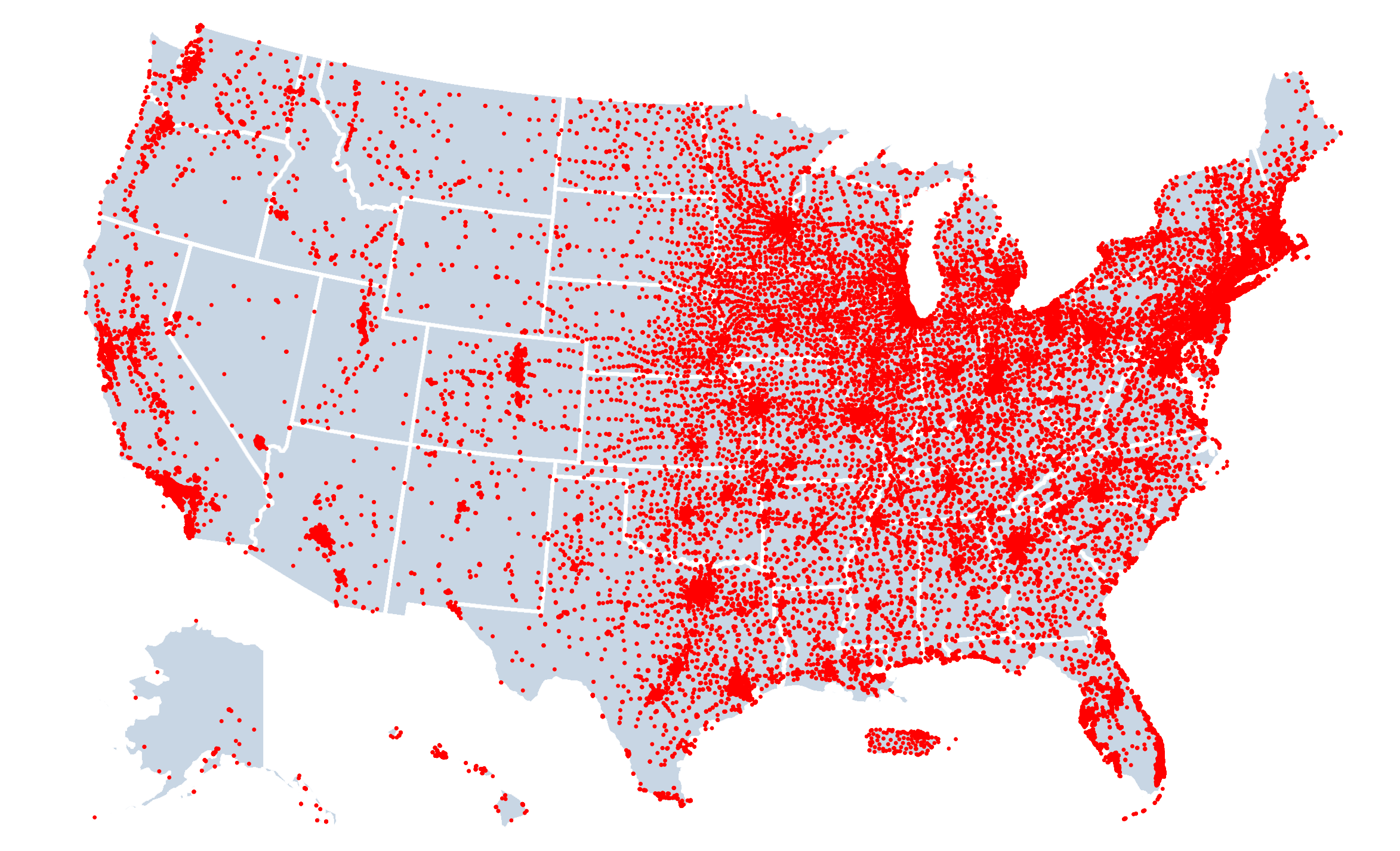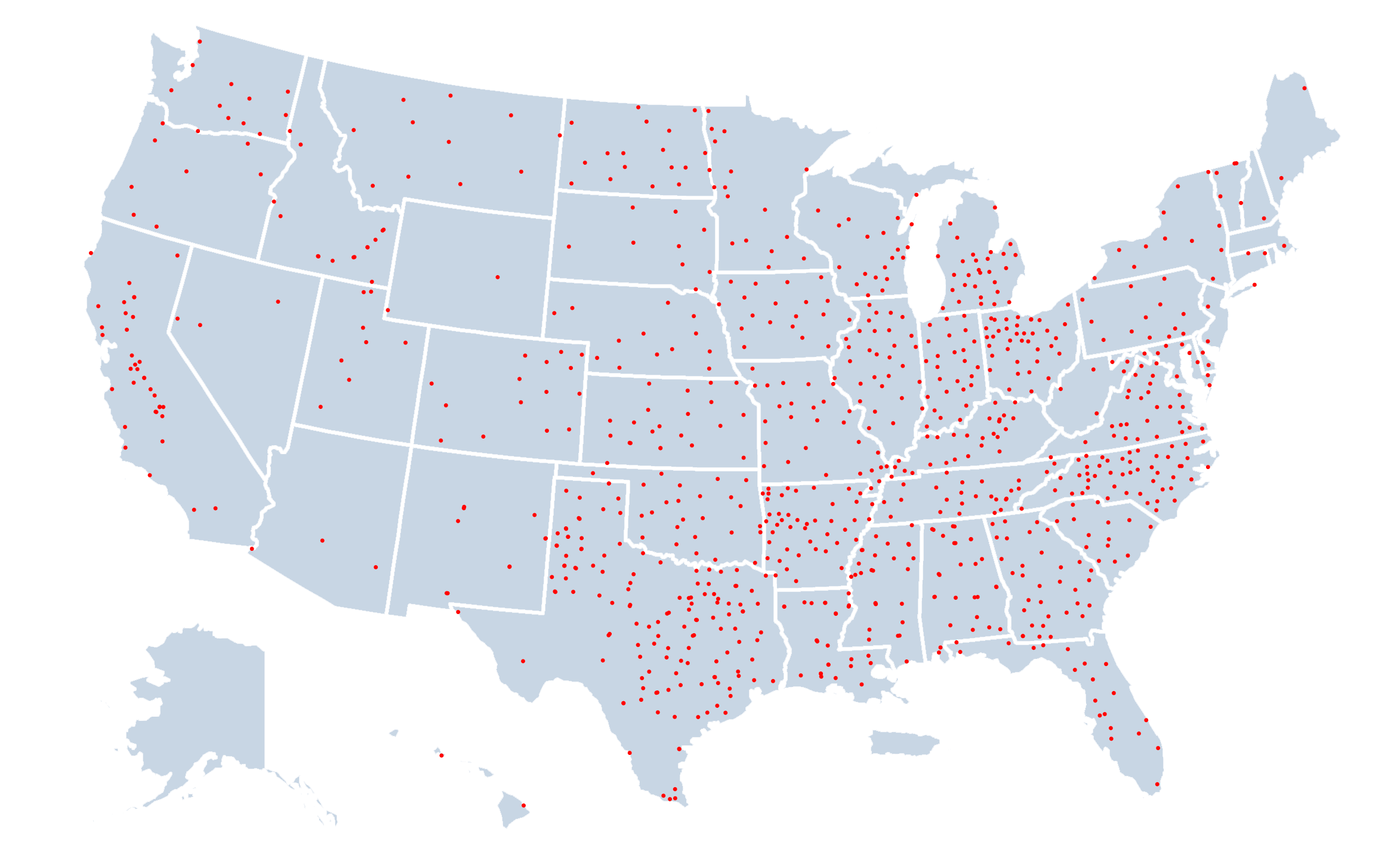Rural Credit Access
What’s the Issue?
Agricultural loans are critical to America’s agricultural economy, as they enable farmers and ranchers to grow their businesses. Unfortunately, rising costs and supply chain disruptions are driving up the cost of running America’s farms and ranches and driving down profitability for those businesses. America’s farmers and ranchers rely on loans to pay for operational expenses such as seeds, fertilizer, and equipment, as well as to buy or refinance land. Access to capital is a challenge for many young farmers – 69% of whom cite it as a top challenge to beginning farming.
Some in congress are considering ways to help America’s farmers and ranchers. One such way is legislation that would exclude from gross income the interest received by a qualified lender on loans secured by farm real estate and aquaculture facilities (wherever located), and home mortgage loans in rural communities of no more than 2,500 people.
Impact of ACRE
The below map shows locations of lenders that currently pay no taxes on interest income from agriculture loans and thereby can offer lower rates to borrowers. Hit the toggle button to see how the availability of lenders that could pass those same savings along increases if ACRE is implemented.
ACRE Implemented


How does removal of the taxation on interest income earned on farm real estate lending help farmers and ranchers?
Removal of the taxation on interest income earned from agricultural real estate loans will bring down the cost to make those loans, thus making them more affordable for farmers, ranchers, and rural homeowners. It will also deliver millions of dollars in annual interest expense savings to farmers and ranchers. The legislation will:
- Allow lenders to offer agricultural real estate loans at a lower rate
- Lower the cost of loans for farmers, ranchers, and those seeking credit for housing in communities of 2,500 or less by lowering interest rates
- Increase competition in the agricultural and rural housing credit market by offering alternatives to standard farm subsidies
What can policymakers do about it?
Congress has an opportunity to help sustain and grow rural America by passing legislation that would exclude from gross income the interest received by a qualified lender on loans secured by farm real estate. By doing so, they would increase competition in interest rates for rural borrowers, making it more affordable for borrowers trying to obtain loans.
Representative Feenstra (IA-4) and Representative Nickel (NC-13) have introduced the Access to Credit for our Rural Economy Act of 2023 (ACRE Act), which would do just that. Ask your congressional representatives and Senators to support this legislation that would remove taxation on interest income earned from farm real estate lending.